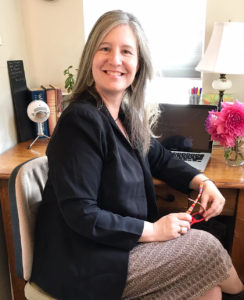The world of journalism has changed a bit since Jennifer Karchmer got her start, but her passion for asking questions and telling stories has only grown stronger.

Now an independent journalist and mentor, Karchmer lives in Washington State, where she’s advocated toward the passage of the state’s New Voices law to help protect young journalists.
“Students aren’t necessarily covered by the First Amendment,” she explains. “In 1988, there was a Supreme Court case, Hazelwood, that turned the clock back in a bad way. It essentially enabled censorship by schools that were looking at stories they didn’t feel presented their high school or college in a flattering light.”
At the time, this might have included stories about teen pregnancy, drug use or the early days of the HIV/AIDS epidemic, Karchmer notes. “Because the schools were uncomfortable with it, they were using this as an opportunity to censor and use prior restraint.”
Journalism advocates began to lobby for state-level legislation, arguing that if these students were doing journalism, like the New York Times, and weren’t libeling anyone and were following all other guiding principles and rules as other professionals would, they should have the same protections.
To date, 14 states have passed New Voices legislation to help ensure student journalists aren’t punished or censored from publishing stories and to reinforce their protections under the First Amendment.
It’s important for young journalists to understand the rights and protections they have in the U.S., which for so long has been a beacon of free speech and freedom of the press for countries around the world. Karchmer also encourages journalists to travel internationally and speak with reporters in other countries to help them realize that there isn’t just one way to be a reporter.
She became familiar with Reporters Without Borders around 2010 and learned about the annual index that organization puts out, ranking the countries around the world with the best and worst track records for journalism. As an American, it’s something journalists here can almost take for granted, but she was curious to see what it meant to be a journalist in Iceland and, later, South Africa, to explore what the industry looks like in places that might be very different in their public approaches to, and support for, journalism and reporters.
She was welcomed with open arms in both Iceland and South Africa and spent time talking to reporters in both countries and came away from both learning a great deal about how U.S. press freedoms are interpreted in other countries and how reporters internationally operate.
“We in the U.S., we don’t have a lock on journalism,” she says. “It’s a construct. The thing I would encourage journalists to do is early on, get an understanding of journalism around the world. This is a public service, this is my passion, it’s in my blood. Getting out of the four walls of your newsroom, get out and travel.”
